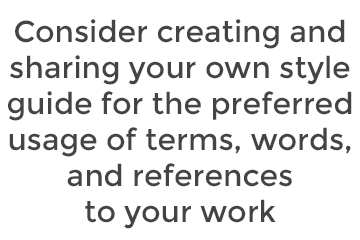

Nonprofit communicators face a big question in today’s highly politicized world: how do I discuss hot-button issues and appeal to constituents as nonprofit missions intersect with political realities? How do I do all this while remaining nonpartisan—and do I even want to? Organizations of all stripes are grappling with this challenge, and there’s no one-size-fits-all solution.
In my work as a nonprofit communications consultant, I often help organizations navigate this complex landscape. Read on for 10 tips to help you craft messages that appropriately engage your stakeholders in this landscape.
Listen.
It can be easy to make assumptions about what your donors do and don’t believe or support, especially in a polarizing political climate. Enter conversations with an open mind, and encourage listening (and myth-busting) to go both ways.
Let those impacted by the work speak for themselves.
Research shows that the power of a human story—especially when communicating around complex, structural issues like income inequality or climate change—can cut through the noise effectively in donor communications to convey impact and inspire giving. Sharing a story in someone’s own words can be a powerful way to help donors connect to your mission, and it puts power in the hands of those most affected by the issues you address.
Look for ways to bring the human angle (with specific stories and examples) to your donor conversations and messaging, and make sure there are plenty of opportunities for everyone in your organization (volunteers, fundraisers, and communicators) to hear directly from those serving and most impacted by your work.
Use a test audience.
To ensure the messages you put out convey the meaning you intend, call on donors, volunteers, staff, and even those outside your organization to serve as test audiences. Focus groups, briefings, one-on-one interviews, or “the friend test” will leave the guesswork out of it and help you answer the question: how will this land?
Bringing others alongside you in the process of developing communications can ensure you tell a story that others have a stake in. A test audience can also help you anticipate what questions donors are most likely to ask and can serve as a cultivation opportunity.
Don’t be afraid to hold or defer to expertise.
Traditional donor-centered fundraising practices might lead us to believe that donors are the experts on the issues your organization tackles, but almost always—they are not. If your organization is leading the way on a particular issue and you have staff or leaders who are working on the front lines or representing those most affected—lean on those resources and help donors understand why you are carrying out the work you are, in the way you are doing it.
Rainier Valley Corps Executive Director Vu Le has a blog post dedicated to this issue, and his community-centered fundraising principles can be a helpful guide.
Choose words carefully.
Words carry their own loaded meanings and can land differently with different people. That experience is even more amplified within the context of a highly politicized issue, in a politicized moment.

Example: If you are an organization that cares deeply about equity, make sure you talk the talk with an equity style guide that brings intention to your language and matches it with your values.
Speak to values, not politics.
Whether your donors have a clear political leaning or whether they are a group with diverse political and ideological views, speaking to shared values, as well as ideas and experiences, can be an effective way to transcend political binaries and help donors feel good about acting on their ideals. The American Aspirations project can serve as one resource among many.
Make sure everyone in your organization at every level knows your organization’s top priorities and non-negotiables.
So you know your mission, vision, and values—but what about your three-year strategic plan? Your campaign vision? Your annual goals? Make sure that your organization has focused its priorities in response to the current, always-shifting political environment, and that everyone at every level is clear on what those priorities are.
Look for opportunities to re-iterate your organizational values often, and reinforce what they mean in the current political environment. This will help focus your target audience and will make it easier to define what areas of your communications you can tailor, and what you should speak on with one voice.
Build donor relationships for the long game.
As an organization, you respond to changes in political realities and your donors should, too. Relationship-based fundraising pays off when you can have strong, authentic partnerships with donors who can stick with your organization through new waves of internal and external change. That means being willing to educate, listen, and even have difficult conversations with donors, and within your organization, about what guides your work and why.
Remember that diversity and representation matter.
Homogenous organizations often represent homogenous beliefs and communications that reinforce those beliefs—from cultural norms and implicit biases to explicit policies, practices, and programs. Ensure that diversity is not only a priority for your Board and leadership, but for frontline fundraisers, communications staff, and donors.
Don’t be afraid to say no.
You can’t—and you won’t—reach everybody with your message. Focus your energy on speaking to those donors who you’ve defined as your target audience: the people who share your core values and are best positioned to advance your mission, and your organization’s top goals, whatever they are today. Be prepared to say no to projects and people that keep you from focusing on your end game!
I hope these tips help your team work through the difficult communications challenges that have become part and parcel of this politicized world.
Have you had success with a particular strategy? Or are you facing a messaging roadblock? I’d love to hear about your experiences and answer questions you may have. Send me an email at anna.goren@campbellcompany.com or leave a comment below.